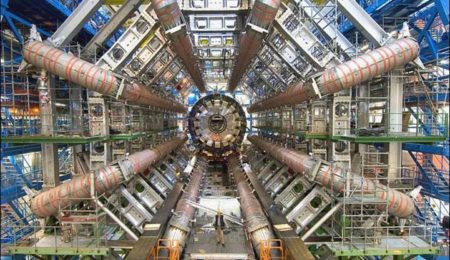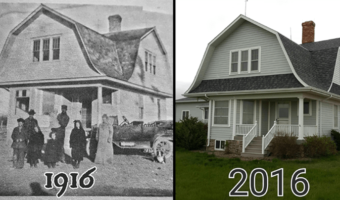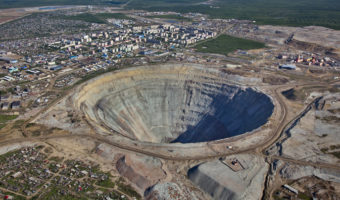The Time Machine (LHC): The Most Complicated Thing Created By Humans

The world is continuously progressing ahead fighting Impossibility and inventing machines which can break all time barriers. Well, yes you understood it right. It is world’s most powerful particle accelerator capable of distorting both space and time. It is known as the CERN’s Large Hadron Collider (LHC). Created after 20 years of work in progress by a team of 7,000 physicists from more than 80 nations, this machine is 27 kilometers in circumference, 175 meters underground.
The possibility of time travel is seen through a research by Irina Arefieva and Igor Volovich which establishes the fact that in general gravity, a time-like curve in space-time will run from past to future. But in some space-times the curves can intersect themselves, giving a closed-like curve, which can be seen as a time machine.

This extraordinary machine works as follows, it is similar to Big Bang conditions of “cosmic plasma”, when two proton beams travel in opposite directions, travelling near the speed of light and collide at four points along the way. The LHC aims to recreate the Big Bang conditions by forcing quarks to break free of their bonds and re-establish the original Cosmic Plasma.

Each tunnel of this great machine is big enough to run a train through it. On the other hand, temperatures generated in this machine are more than 1000000 times hotter than those at the sun’s core. But the variation is so huge that superconducting magnets are cooled to a temperature colder than in deep space. This machine is housed in huge caverns and it runs 17 miles across the border of two countries. One can now imagine its enormous size!

Talking about its cost, it is huge just like the machine itself. In order to invest in such a machine, America had to stop its own Superconducting Super Collider in 1993. It can also be seen from the fact that a single superconducting solenoid in the machine contains more iron than the Eiffel Tower.
According to the Discovery Magazine, the collisions at LHC could spray out strange new kinds of matter, unfurl hidden dimensions of space and even generate tiny glowing reenactments of the birth of the universe.

CERN Scientists have also put to rest the weird notions associated with this machine by assuring that even if black holes will be produced, they will be too small and too short-lived to generate a strong gravitational force.

[sources: darkroastedblend.com, wikipedia.com, lhc-machine-outreach.web.cern.ch]
























